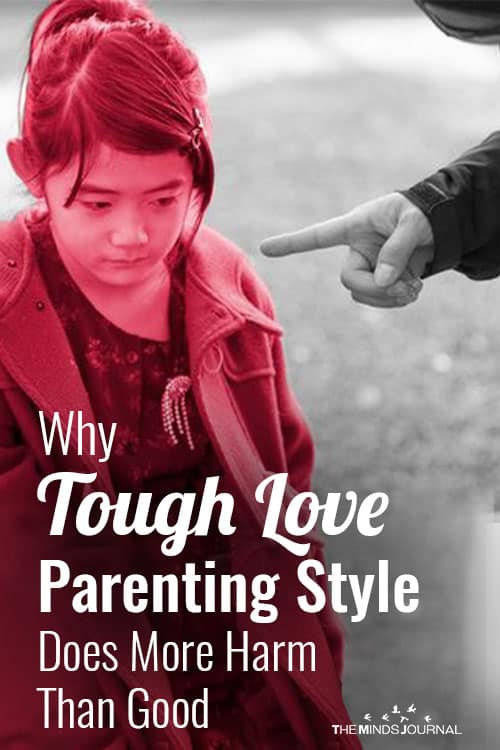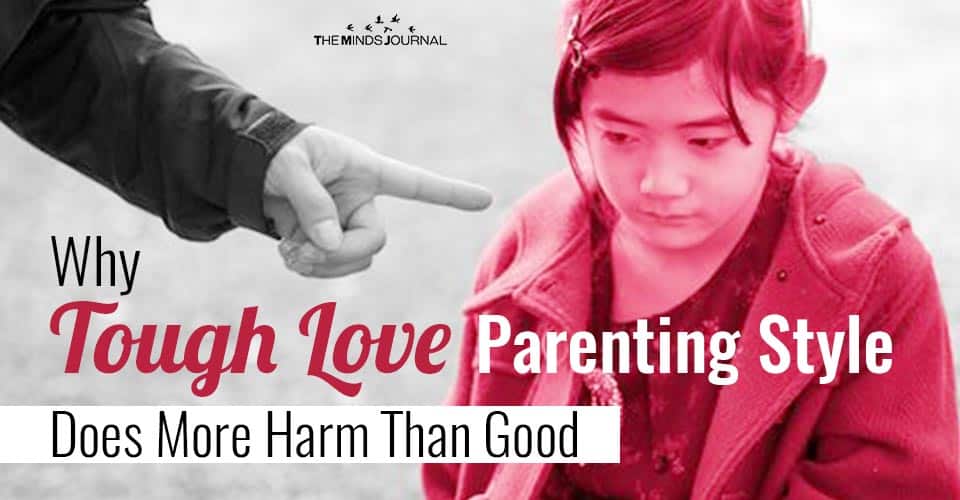When you were a child, did your parents raise you in the tough love parenting style? Because they believed that, that would make you stronger?
Studies suggest comforting a crying child is better for their long term development than telling them to be strong or get over it.
One of the hardest parts about being a parent is wondering if the ways you treat your child now will lead to a happy well-adjusted adult, or if your parenting style is giving your kid more fodder for their future therapist appointments.
This second-guessing your instincts is especially hard when your kid is sobbing over something that in your opinion, isn’t that big of a deal.
Were you treated with tough love by your parents? Read 5 Kinds Of Fear-Based Parenting Every Parent Should Steer Clear Of
When your child treats a skinned knee like a broken leg or sobs because he can’t find his favorite truck (under the couch, it’s always under the couch) it’s tempting to roll your eyes and tell them to deal with it. But studies suggest a “suck it up” parenting style could lead to emotional issues for kids later in life.
Slate writer Melinda Wenner Moyer was worried about coddling her five-year-old, so she talked to some child psychologists to see whether a tough-love approach was better for kids. Turns out, it’s not.
In a study of 33 preschoolers, researchers determined when parents reacted harshly to their child’s negative emotions, those children tended to have more meltdowns and intense emotional reactions to things. They concluded kids whose parents didn’t comfort them when they were upset found it, “relatively difficult to behave in a socially competent manner.”
And the idea that we should teach boys not to cry and “act like a man”? Utter bullshit. A 2015 study found male college students who were punished as kids by their moms when they got overly upset had more anger management issues than men whose moms had been supportive when they were younger. College girls who were punished when upset as kids only had anger issues with their moms if the relationship was strained as an adult.
People in white lab coats and their studies aside, soothing your child is common sense. Yes, snuggling a kid who’s still wailing over spilled milk five minutes after it happens is annoying, especially when you’ve got dinner to make, laundry to fold and said milk to still wipe up. But as adults, we both expect and give emotional support when needed, no matter how serious or silly the issue.
Want to know more about how you can support your kids better? Read Top 10 Worst Parenting Words You Should Never Use For Your Child
Think about the dumb fights with your coworker you rehash in detail with your husband for reassurance that you’re not the one who’s wrong or the passionate discussion you have with your bestie about the final rose ceremony on The Bachelor. The bottom line? Three or thirty-three, we all just want to feel like our emotions and opinions matter.
Developmental psychologist Ashley Soderlund gives us a silver lining for the next time our child has a melt-down in the middle of Target. “Children need to practice expressing emotions and learn to deal with them. That leads to resilience,” she told Slate. “The golden rule is that emotions are never the enemy, even when they are exaggerated.”
If you want to know more about how tough love parenting style does more harm than good, then check out this video below:










Leave a Reply